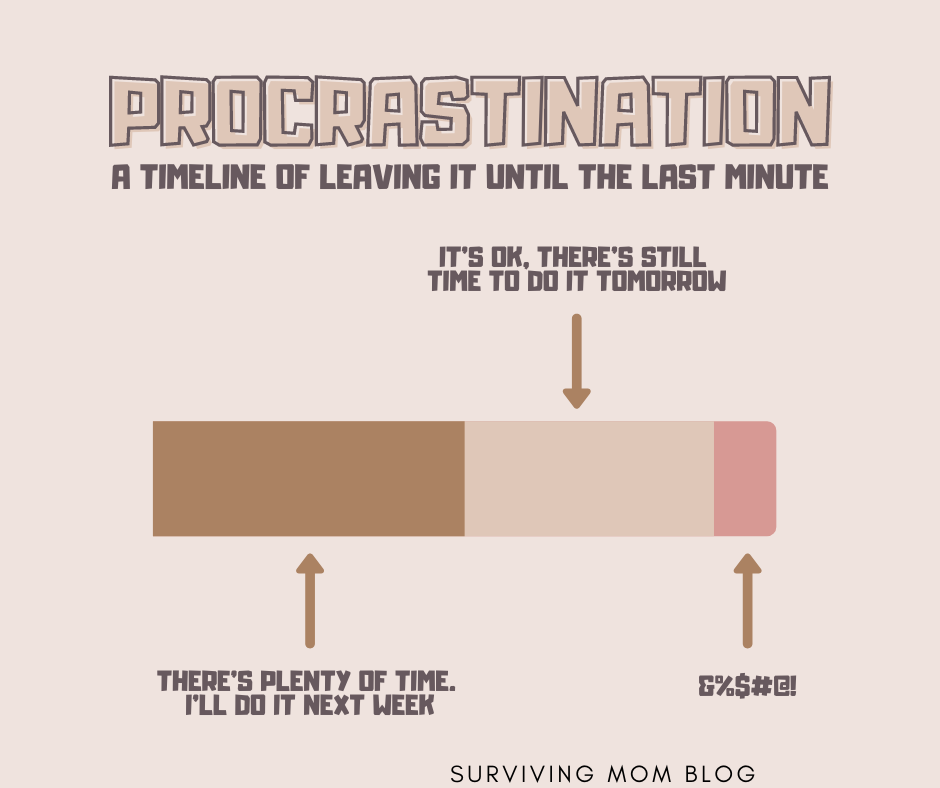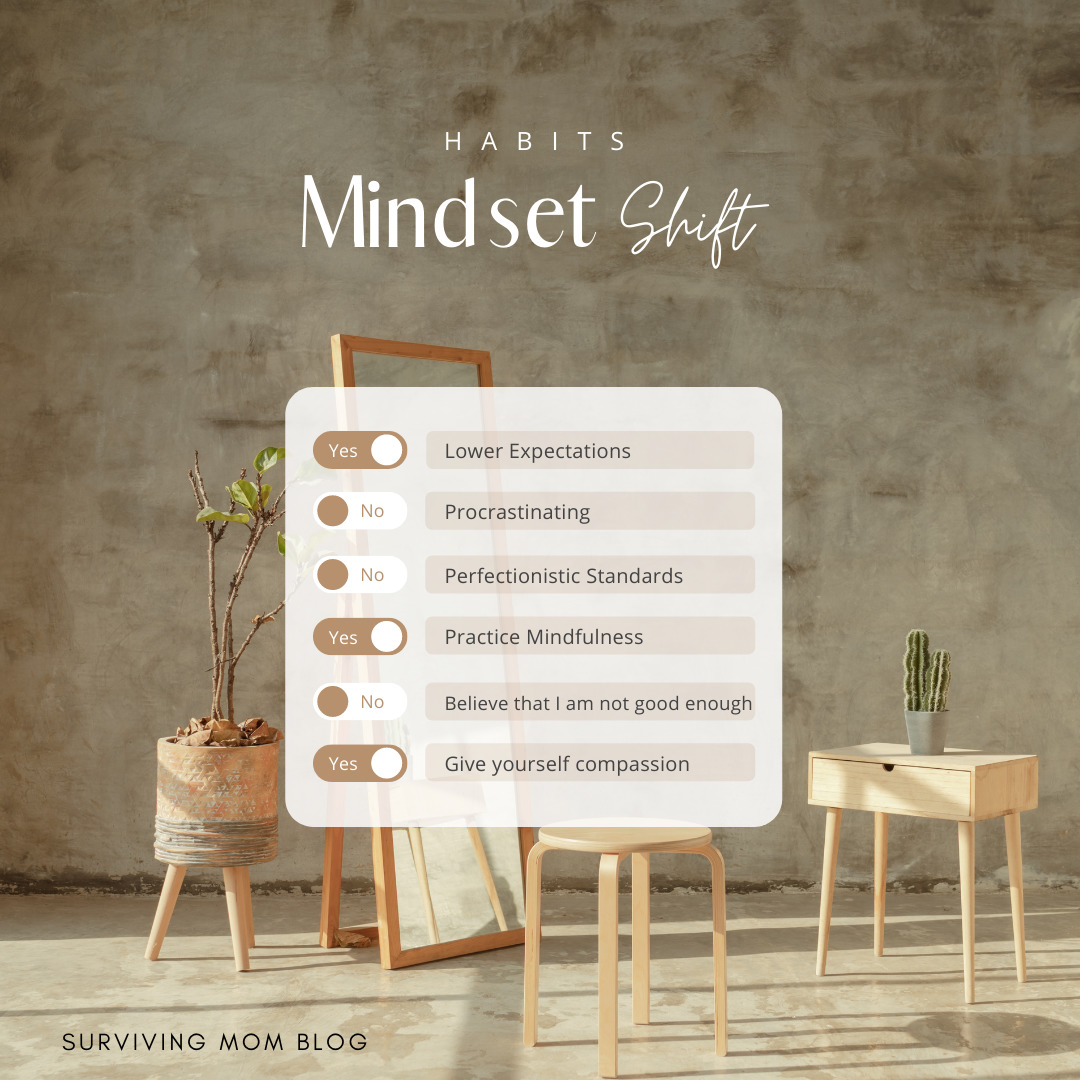
I have wanted to discuss the connection between perfectionism and procrastination for some time. However, I find research-based topics to be quite daunting. It is an arduous task to gather numerous sources, compile the information, write an outline, draft, edit, etc. As a recovering perfectionist, I want the content I put out to be comprehensive, detailed, and accurate. I push myself to be the very best in everything that I do, often going past the point of exhaustion. As a result, I find myself now writing about this topic months after I initially planned to do so. I am an example of how perfectionism and procrastination go hand-in-hand. This article will explain perfectionism and procrastination, as well as how to overcome the perfectionism and procrastination connection.
What is Perfectionism?

Perfectionists set extremely high standards. Self-worth is contingent on those unrealistic achievements. Perfectionism stems from a fear of failure and judgement. False belief systems make us feel that we aren’t good enough. We also often feel that others will judge us as not good enough.
Perfectionists are often sensitive to any forms of criticism, seeing any type of negative feedback as an indication of a lack of ability. There is often a black and white way of thinking, meaning that we believe that if we do not achieve perfection, we are failures. The inability to achieve these lofty standards causes stress and overwhelm. There is often performance anxiety and anticipatory anxiety. We feel incredible anxiety about not achieving the standards we set for ourselves, and this anxiety causes fear starting and completing tasks. The consequence of not achieving perfection is also seen in the mind of a perfectionist as catastrophic.
Even when perfectionists meet their goals, the feelings of success and accomplishment are temporary. In the mind of a perfectionist, there is always more that needs to be accomplished. The self-worth of a perfectionist is unstable, as it is contingent on results. Ultimately, perfectionists are setting themselves up to fail, as perfection is unattainable.
What is procrastination?
Procrastination is an example of the Flight response, as it is done to avoid a threat (i.e., a task seen as challenging or unattainable). Procrastinators will put off making decisions, will give up prematurely, or will delay beginning a task (The Skill Collective, 2021). Due to discomfort about the task, procrastinators choose to put things off.
Procrastination stems from a variety of factors, including indecisiveness, lack of focus, lack of self-confidence, and task anxiety (webstandardssharpa.com, 2014). Procrastinators often feel shame about their behavior, which only perpetuates the procrastination. They don’t want to face their discomfort, so they continue to procrastinate, only furthering their shame and their discomfort.

What is the perfectionism-procrastination connection?
Perfectionists feel great anxiety about not achieving their goals. Procrastination allows perfectionists to not have to face their own anxiety regarding failure. As a result, something less threatening is done instead. However, procrastination causes its own feelings of shame, only perpetuating the perfectionistic way of thinking. We avoid because we are not perfect, and avoiding only reflects our imperfections. Anxiety and shame are the constant companions of perfectionists and procrastinators.
Procrastination is often a symptom of perfection. That said, not all perfectionists are procrastinators, and not all procrastinators are perfectionists. However, for many people, perfectionism and procrastination are connected, known as the perfectionism-procrastination infinite loop (The Skill Collective, 2021).
The perfectionism-procrastination loop is:
- you have perfectionistic standards
- there is a fear of failure
- there is great discomfort regarding an unsuccessful outcome
- this discomfort causes fear
- imperfection and discomfort are avoided by procrastinating
WE FEEL STUCK.
Ultimately, we stay in this loop because we never have to test our faulty belief system of not being good enough. If we procrastinate and perform well, it reinforces our procrastination because we can imagine that our potential wasn’t fully reached. If we perform badly, we can attribute it to time constraints and not our actual potential (which protects our fear of failure). This will also result in a continuance of this loop.
How do we overcome the perfectionism and procrastination connection?
Ultimately, the only way to end this loop is by changing our way of thinking regarding perfection and procrastination. Whether you consider yourself a perfectionist, a procrastinator, or both, these strategies are helpful:
(1) Lower expectations
It is necessary to re-examine the standards that we set for ourselves. This starts by understanding that there is a difference between excellence and perfection. Excellence is attainable through practice and experience, as well as developing confidence over time. Perfection is unattainable and fosters negative feelings from mistakes, regardless of excellence.
Remind your inner critic that some things are more difficult and harder to achieve than others, and THAT IS OKAY. Having a growth mindset instead of a fixed one allows us to see flaws as opportunities to learn and grow, as opposed to catastrophic thinking. It is great to have an end-goal in mind, but make sure that it is healthy (a realistic outcome) and remember that it will take time to get there.
(2) Challenge your black-and-white way of thinking
The next time you feel anxious about a task, make a list of the best-case scenario, worst-case scenario, and a realistic-scenario. By breaking it down, it helps us to realize unrealistic expectations and visualize a more attainable outcome.
(3) Schedule your goals
Certain tasks and goals can feel quite overwhelming. Break them into smaller, more attainable goals. Instead of doing everything at once, break the task into realistic steps and schedule time in advance to do so. This will allow you to accomplish things in a more manageable way, and it gives you the opportunity to applaud your accomplishments along the way. This will help you to feel more motivated while also combatting procrastination. There are various ways to assigning time to complete a task (www.webstandardssherpa.com, 2014):
- Set aside 5-10 minutes – set an alarm for 5-10 minutes and tell yourself that you will stop when the alarm goes off. This small amount of time is non-threatening and will help you to face your fears about starting something.
- The Pomodoro Technique or Merlin Mann’s productivity technique– Both techniques involve setting an amount of time to focus your attention on a task and then taking a break. The Pomodoro Technique is setting a timer for 25 minutes, working until the timer goes off, taking a five- minute break, and then repeating the whole process another four times. After the 4th cycle, you take a 15-30-minute break. Merlin Mann’s technique is working for 10 minutes with a two-minute break for five cycles (altogether an hour).
- Choose your own amount of time– determine in advance how much time you will devote to a task, as well as the amount of time for breaks. Whatever you choose, make sure to follow through.
- Schedule a task for a specific day– Put it on your calendar, and you can incorporate one of the set times above.

(4) Set boundaries
We often feel the need to please everyone. When we say “yes” to too much, this only increases our feelings of overwhelm. This will fuel the self-destructive cycle of perfectionism and procrastination. When we start to say no to things that we don’t have time for, we can make time for the things we want to do. Adding activities that bring us joy is important for our well-being and for having a healthy balance of demands and enjoyment.
(5) Reward yourself
Make a daily list of the tasks you want to accomplish, no matter how small. Make sure to take the time to applaud your achievements when you are done. Whether it is taking out the trash or finishing a household project, treat yourself afterwards. That can mean reading a book, listening to music for a few minutes, or sitting down on the couch and relaxing. It also breaks up the day and reminds you that you deserve positive reinforcement for your effort (www.healthline.com, 2019).
(6) Practice mindfulness
Recognize how your body is feeling as you are taking on tasks. Remind yourself that you are safe and that it is okay to not be perfect. Check-in with yourself throughout and take time to do breathing exercises or other grounding activities to manage your anxiety (www.healthline.com, 2019).
(7) Eliminate distractions
Put away anything that can interfere with your focus. That includes your phone, iPad, etc. Gather the necessary materials to complete your task and go somewhere free of interruptions.
(8) Mind tricks
Prepare to do something instead of actually doing it. That can mean jotting down ideas for a research project or doing an online search for topics. Once you start on the task, it is usually easier to continue it. By combatting your anticipatory anxiety, you are already on your way to accomplishing your task. You can also make a list of all the tasks you want to accomplish, in order of importance. Even if you don’t pick the most important one, you are still being proactive and not procrastinating (www.webstandardssherpa.com, 2014) .

(9) Start a task without having everything
If you wait for everything to be in order to begin a task, you can always come up with reasons to procrastinate. Instead, begin something knowing that there are missing pieces. You will gather the necessary information along the way, but starting on it helps reinforce the belief that it doesn’t have to be perfect.
(10) Give yourself compassion
The standards we set for ourselves make us our own worst enemies. The next time you finish a project, look it over as if someone else had done it. Tell yourself the same words of support as you would another. Compassion also means that we should focus on our own achievements and not compare ourselves to others. We should applaud our efforts instead of focusing on the results. Remember that mistakes do not make us failures, they make us human.
Perfectionism and procrastination are a way of thinking and behaving that stems from our belief system. It is not something that happened overnight, and it is not something that will go away overnight. Understanding why we do things the way we do goes a long way towards change. Remember that there will often be two steps back for every one-step forward along this journey. Like everything else in life, setbacks are inevitable. Be proud of yourself for your self-awareness and commitment to overcome perfectionism and procrastination.

